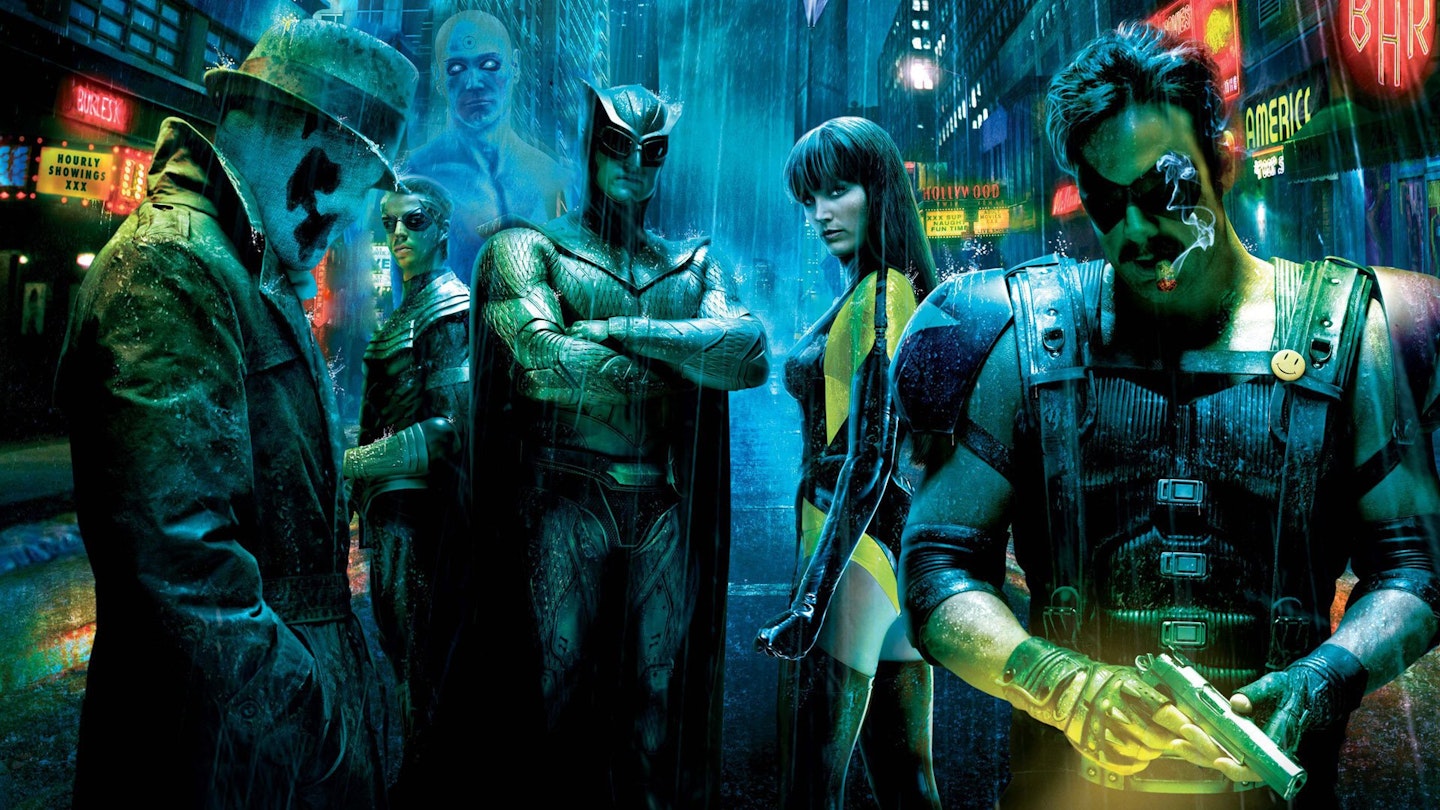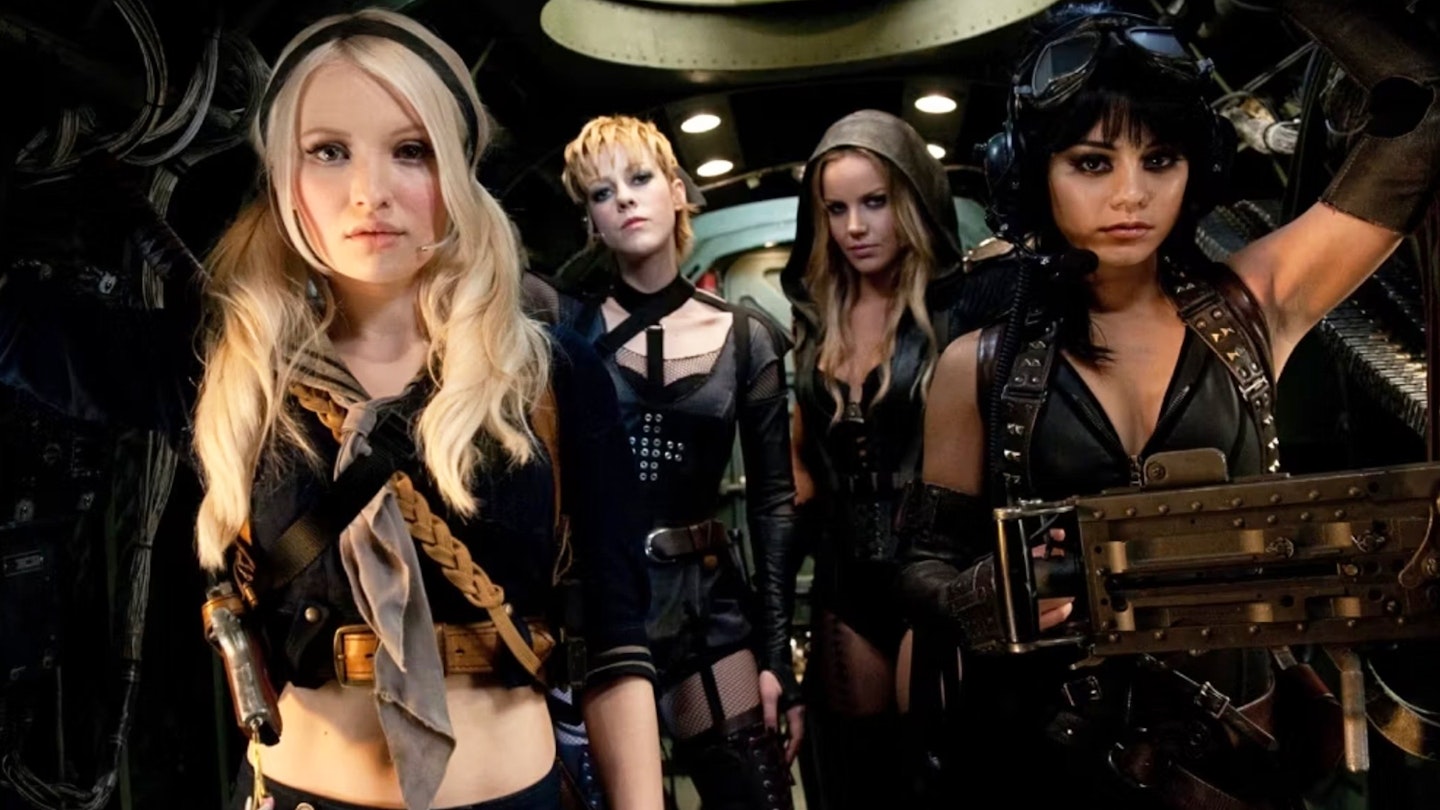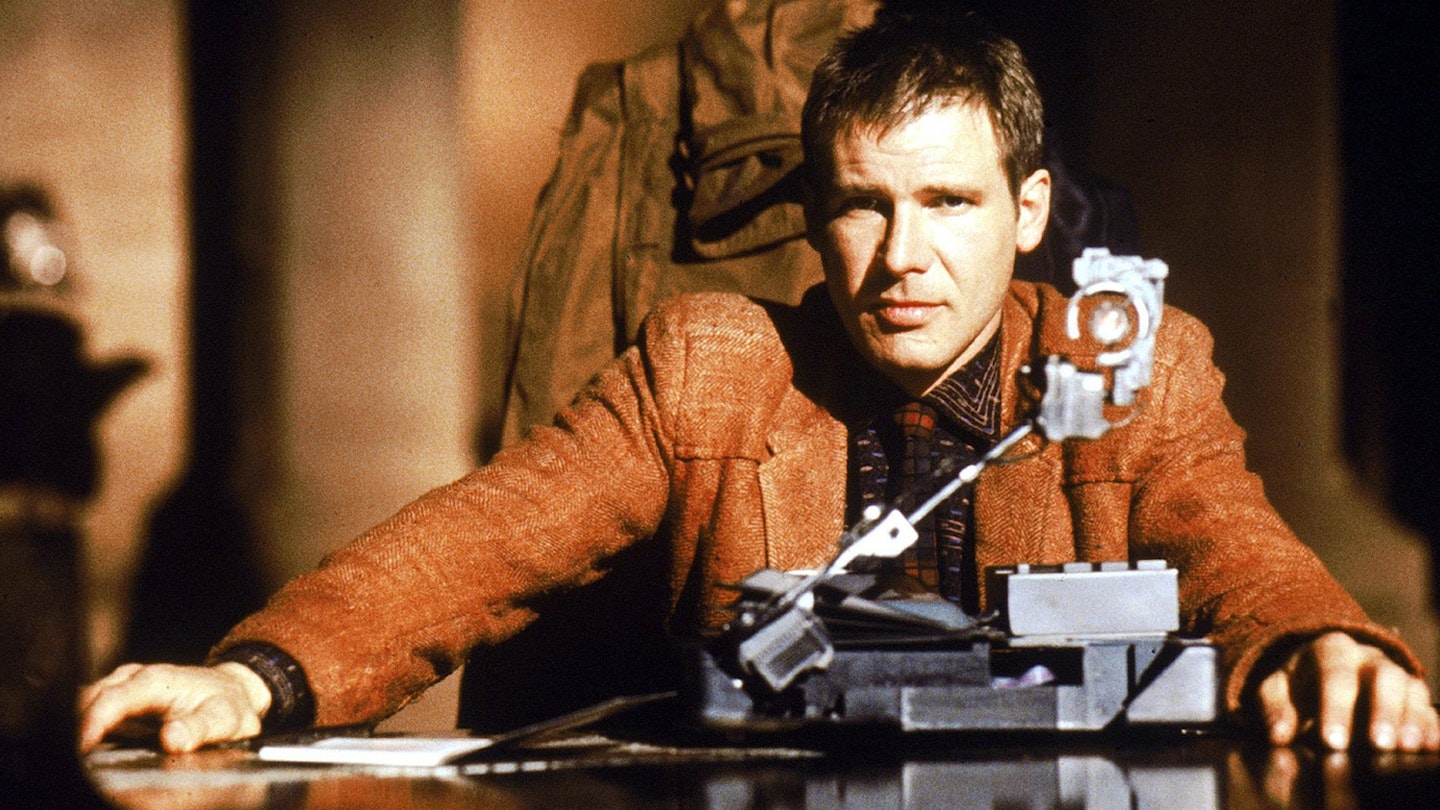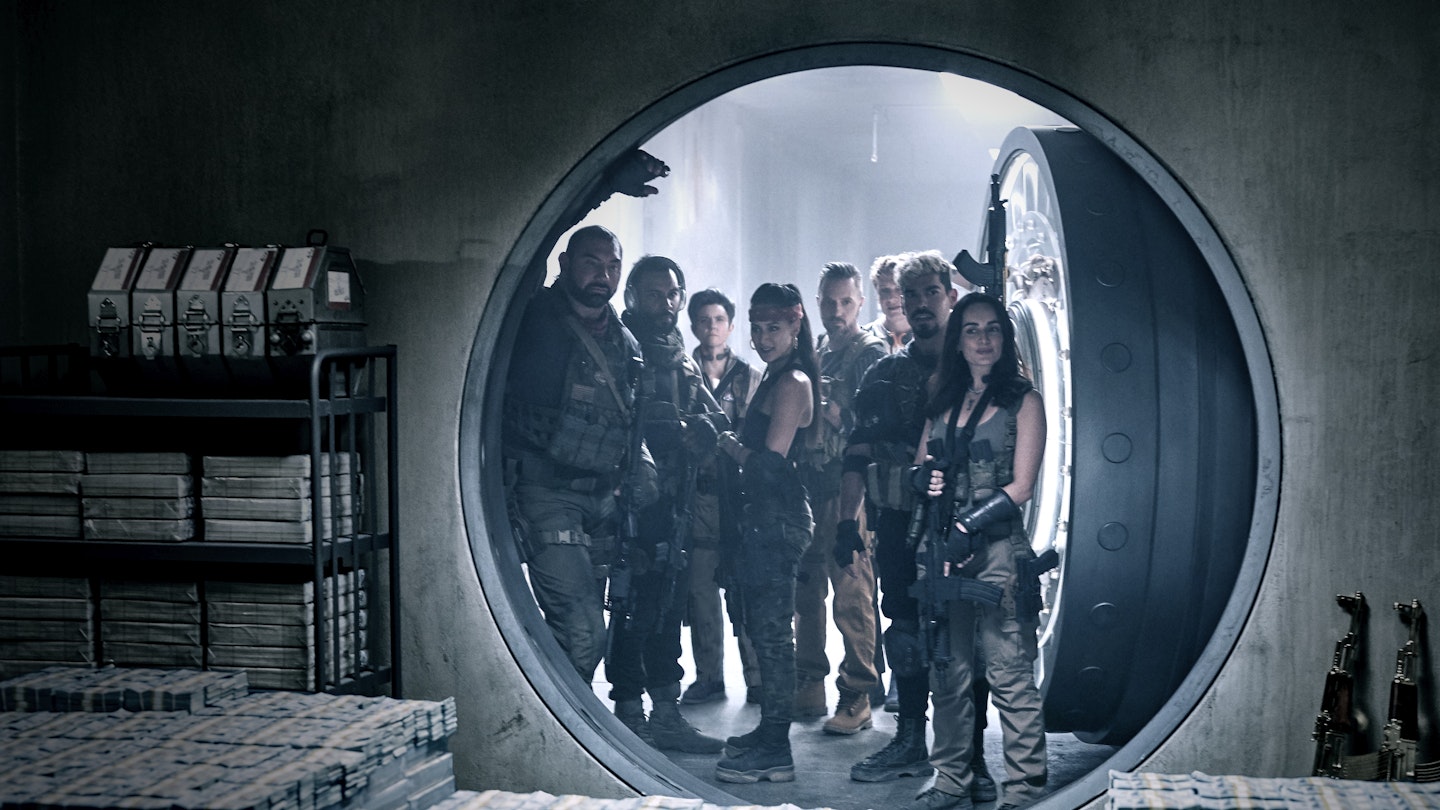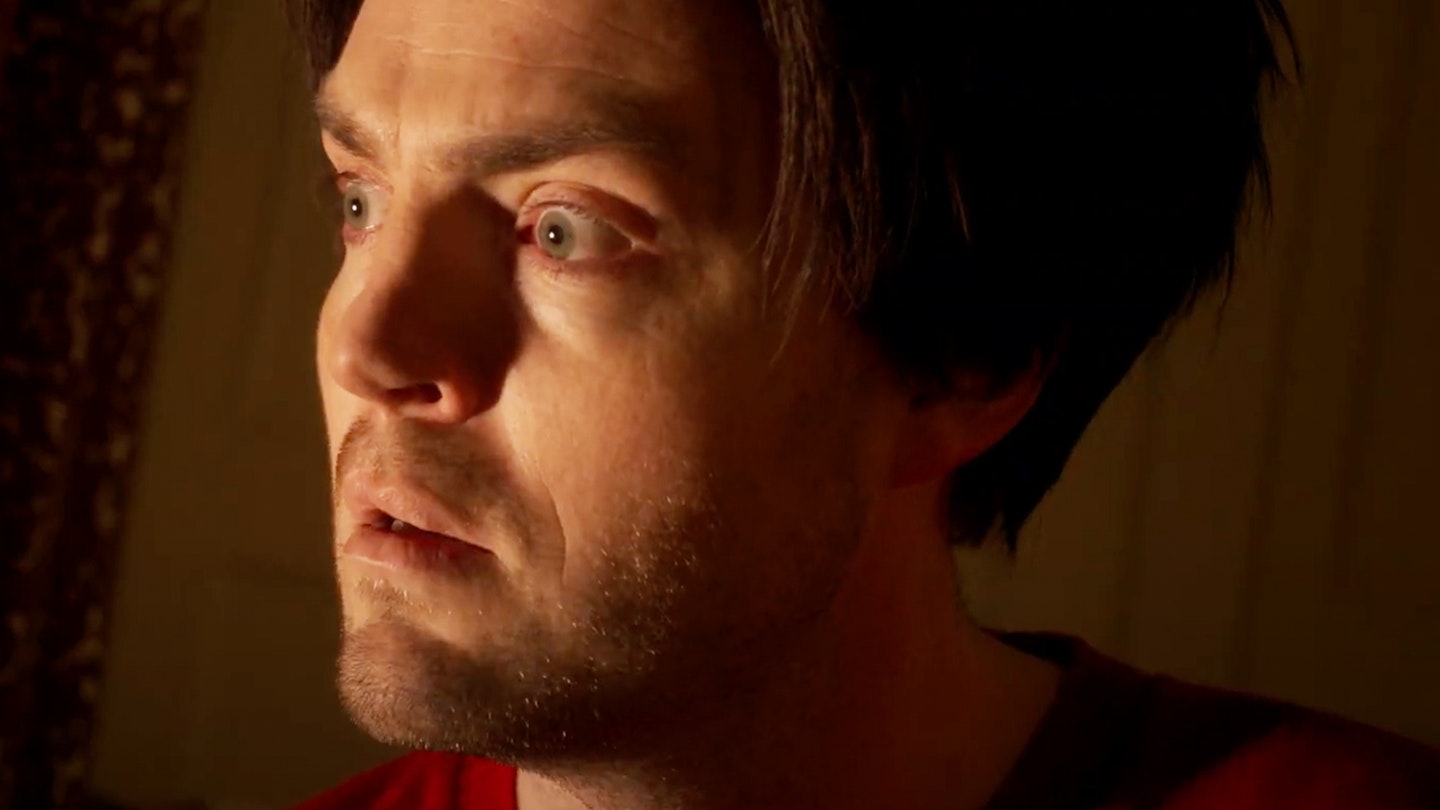Recently quizzed on his expectations for the movie adaptation of his hallowed graphic novel Watchmen, Alan Moore — shaman, philosopher, citizen of Northampton and visionary comic-book auteur — was heard to sigh. “Do we need any more shitty films in this world?” he grumbled not-unreasonably. After all, a muddled V For Vendetta and the gigantic snafu that was The League Of Extraordinary Gentlemen had led him to finally cut all ties (including financial) with the movie world. Let them do what they will, just don’t involve me. He concluded his diatribe with the simple remonstration that Watchmen, his masterwork, was “inherently unfilmable”.
Which is not exactly encouraging for a director attempting their dream project. But Zack Snyder, hot from his stylised-if-juvenile adaptation of Frank Miller’s 300, is a determined man. Even if Moore had turned his back, Snyder was one of the faithful, Watchmen his Bible, and would treat it with a care unprecedented in the annals of Hollywood screw-ups. Every sinew of directorial effort has been bent on proving the author wrong.
Equal parts celebration, parody and exotic dissembling of an entire industry, the novel is dizzy with storytelling devices: not just comic-strips, but biographical chapters, diaries, newspaper reports, poetry quotations, medical files and a warped, ultra-violent story-within-a-story called Tales Of The Black Freighter (sensibly siphoned off by Snyder into an accompanying animated DVD release). It was less the Citizen Kane of graphic novels than the Ulysses — a vortex of astonishing ideas that could take you years to fully compute. Stick that into two hours of family entertainment then, Zack…
In this gloomy, alternative Nixonian America, an outcast superhero has been tossed out of his apartment window. Still, The Comedian, former member of the disbanded Watchmen, has some ugly secrets. Rorschach, a paranoid sleuth whose ink-blot mask eerily ebbs and flows with his moods, can smell conspiracy, but his fellow ex-Watchmen are hard to convince. Ultra-brain Ozymandias is locked away in his ivory tower solving the energy crisis, Nite Owl and Silk Spectre are fretting over freakish pasts, while Dr. Manhattan — the only genuine superhero, having been blasted in a freak atomic accident — has become detached from human emotion, capable of knowing his future and travelling to Mars on a whim.
It’s a whodunnit, although what exactly has been done is hard to say. It’s an action movie heavy on dialogue, although the movie styles up the punch-ups into slow-mo montages slickly edited to effective if anomalous tunes — a Snyder predilection that can lean towards the wearily hip. It’s an origin story, or rather five origin stories flashbacking through time. It’s a bleak, rangy tale of a planet beset with disorder, a parable about power, and a superhero soap that shuttles between multiple story arcs that almost divides the film into comic-book cells.
Greater reputations than Snyder’s have wrestled with the beast to no avail. Terry Gilliam, no stranger to whirling structures and otherworldliness, couldn’t figure it out. Paul Greengrass, no stranger to political subtexts and propulsive action, was abandoned by a sceptical studio. Amid the mud-hurling of the recent court case, the script was accused of being an “unintelligible piece of shit”.
That Snyder has gotten a version to the screen at all is a triumph. He has found a way — although this is 160 minutes of a dense, geek-orientated blockbuster for grown-ups. Inevitably, but hardly catastrophically, it fails to truly capture the cascade of ideas and bracing cynicism of Moore’s writing. Yet there is a challenging, visually stunning and memorable movie here, moored halfway towards achieving the impossible.
It will also inevitably be judged from two angles: what it means for those that have read the comic-book, and those who will enter the cinema unequipped, say, with the history of the Minutemen, predecessors of the Watchmen, or the nature of Bubastis, Ozymandias’ genetically mutated lynx. Snyder nearly manages a film for both, but errs to the former. While necessarily filleting down the vast story to something palatable for human bladders, he is slavish to the original text. In his desire to encompass the novel’s strands, storylines and their payoffs are short-changed, leaving the film emotionally subdued, more an intellectual mystery than natural thriller.
And there is no compromising for the junior dollar: arms are snapped, heads hatcheted, and Viet-Cong splattered like flies by Dr. Manhattan, while Silk Spectre keeps her kinky boots on during mid-flight coitus. The entire atmosphere, dunking the cleaner lines of the novel into a pungently vivid, rain-sloshed superhero noir, lacquered in blood stains and midnight shadows, is superbly realised, a true world-unto-itself far more stimulating than Iron Man’s Windowlened sparkle or even The Dark Knight’s shimmering, Michael Mann-ish nightscapes.
In boldly keeping the book’s (then contemporary) 1985 setting fraught with Cold War paranoia — the plot teeters on the brink of nuclear war — the film becomes a less urgent period-piece. The political spine is now cute, as America taunts the Soviets as it has Dr. Manhattan as the ultimate deterrent. A hairless blue man with it all hanging out, he comes care of a mo-capped Billy Crudup that’s about 70 per cent successful — much better in close-up than the distracting mid-shots dominated by his blurry-blue CG cock.
Of all the Watchmen, it is Rorschach and Nite Owl who are most successful. Jackie Earle Haley finds the leery, psychopathic heartbeart of the faceless Bogart, and you half-wish Snyder might have stuck with Rorschach as protagonist rather than spreading the net so wide. No doubt the purists would have wailed. Patrick Wilson, too, is just right as the tortured Owl, a hero bereft in his own identity. It is Mathew Goode as oddball Ozymandias, and Malin Ackerman as Silk Spectre who botch line-readings, ill-at-ease in latex that is part suit and part joke.
Which should tell you Snyder has caught the novel’s provocative mindset. Fundamentally, Moore was asking how a universe of costumed crime fighters might actually work. A quest borrowed by Nolan for his Batman rethink. Here, though, there is dark satire: Batman (now Nite Owl) can’t get it up, impotent without his suit on; Wonder Woman (now Silk Spectre) carries the mountain of her mother’s guilt (a previous Silk Spectre marooned in old age); Superman (now Dr. Manhattan) has taken on the unreachable guise of a god. Best of all, there is Philip Marlowe (now Rorschach), with his do-or-die morality and Taxi Driver voiceover, the most hideously human of the bunch. Holed up in the clink, the inmates try to dispose of the despised crime-fighter. Unmasked and dead-eyed, Earle Haley turns to his foe and, shortly before dousing him in boiling chip fat, chillingly delivers Moore’s deathly magic: “None of you understand. I’m not locked up in here with you. You’re locked up in here with… ME!” And he’s the hero.
